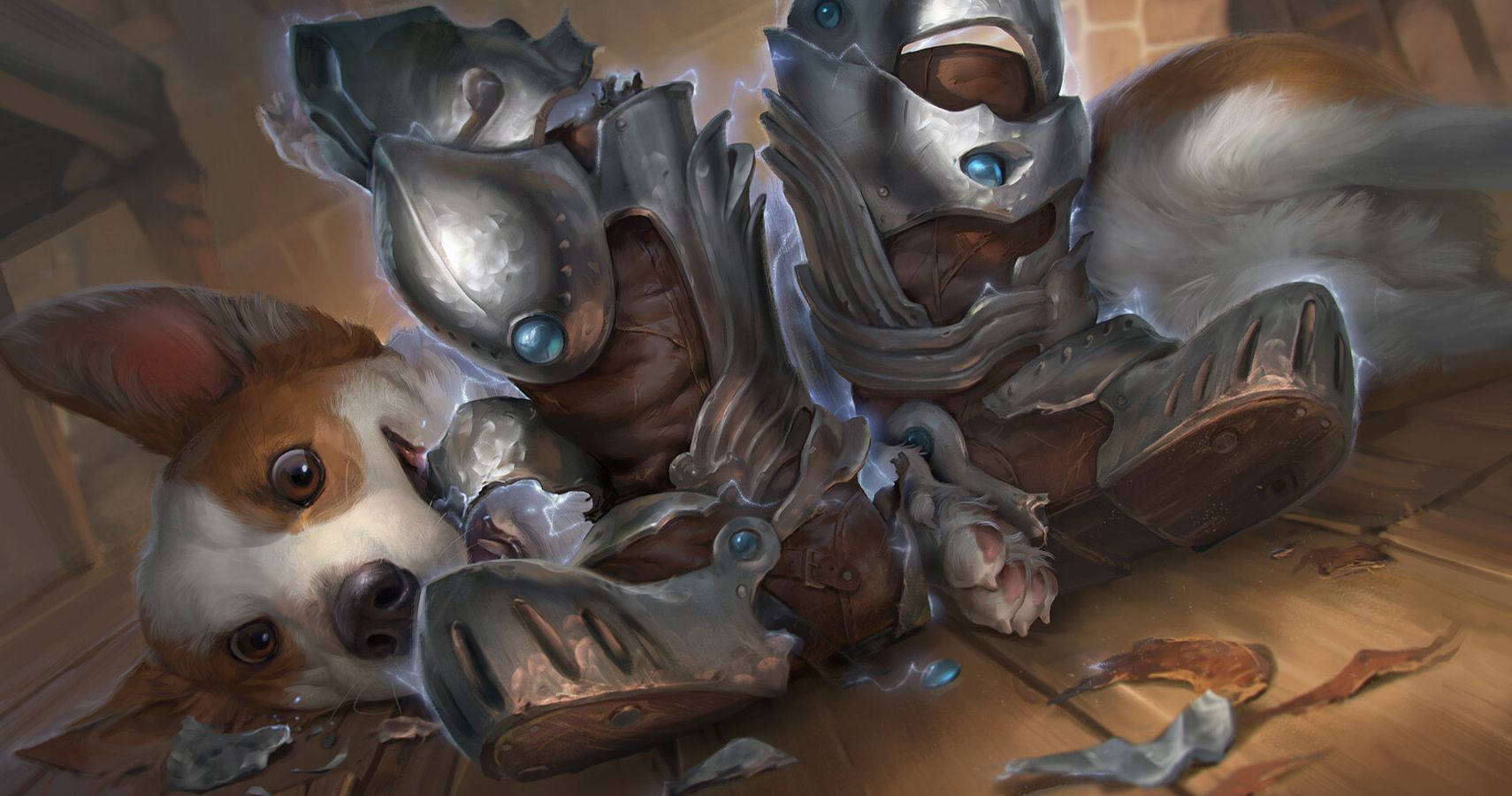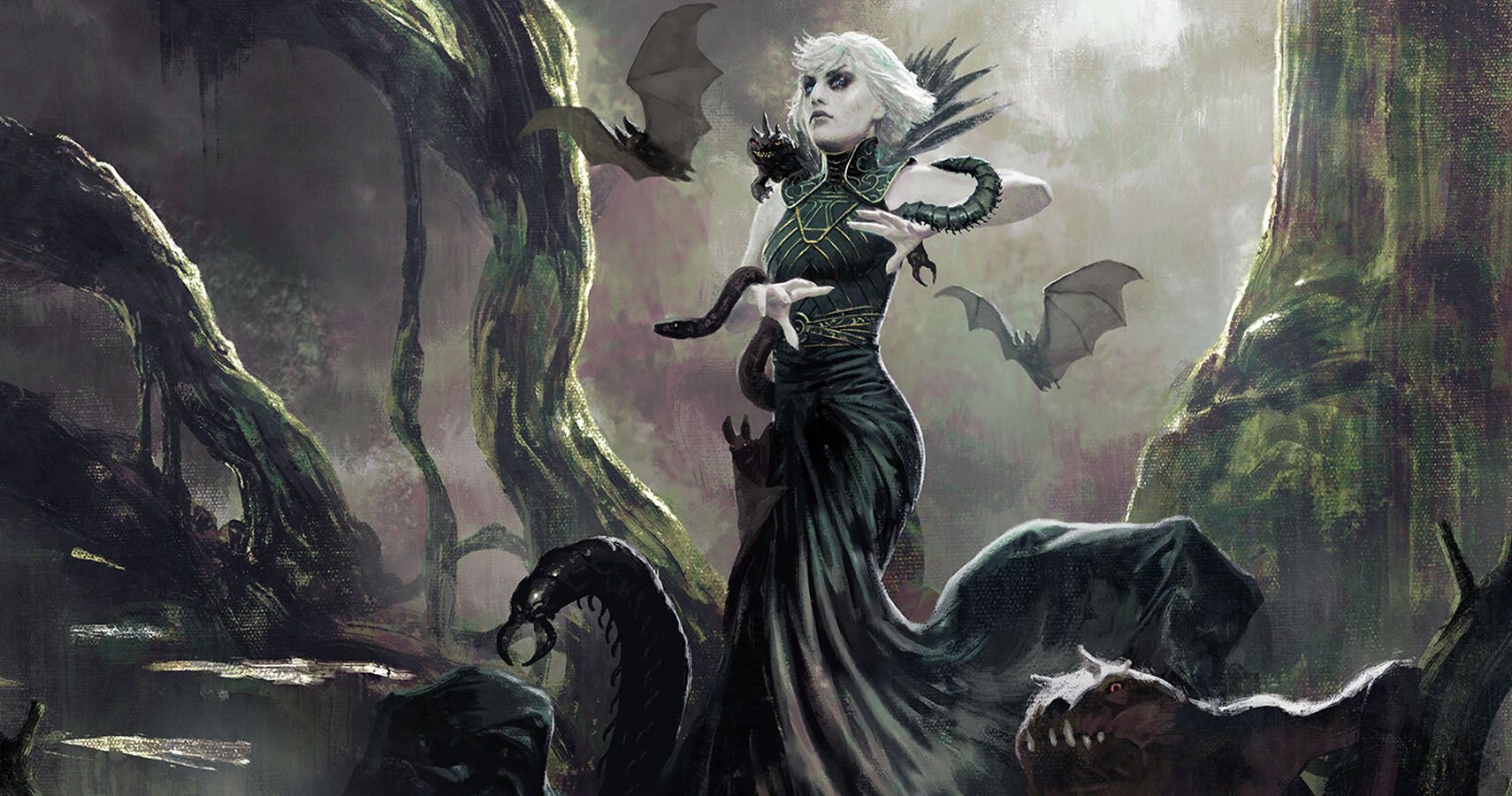With so many ways to affect your opponent's board in Magic the Gathering, you need to find ways to protect what you have. One of the most powerful ways is through Shroud, Hexproof, Ward, and Protection itself to stop your opponent from messing with you in the first place.The problem is, Shroud, Hexproof and Ward can be very confusing abilities to newcomers. With all three so similar, here is everything you need to know about each.
What Is Shroud?
Shroud is the simplest of the three to explain: anything with Shroud can't be the target of any spells or abilities.
Shroud is a static keyword ability, like Trample or Haste, meaning it's an inherent trait of whatever permanent (a creature, enchantment, artifact, or land) it's on. It doesn't need to trigger, and doesn't have any costs associated with it – a permanent with Shroud just has it as a (mostly) immutable characteristic.
Though simple to explain, Shroud caused a lot of problems because players would frequently misunderstand what it does. If a permanent you control has Shroud, nobody can target it, including you. It was this confusion that lead to the retirement of Shroud and the introduction of Hexproof.
What Is Hexproof?
Hexproof is the 'fixed' version of Shroud that does what players assumed Shroud did.
Another static keyword ability, Hexproof means nobody but the permanent's controller can target it with a spell or ability. Unlike Shroud, you are free to target your own things, but nobody else can.
In Magic's design philosophies, Hexproof has almost completely replaced Shroud. However, knowing the difference between the two is important, especially in formats like Commander where both Swiftfoot Boots (which gives an equipped creature Hexproof) and Lightning Greaves (which gives them Shroud) see regular play.
What Is Ward?
Ward is a new keyword ability that was introduced in Strixhaven: School of Mages. It's meant to be a 'lighter' Hexproof, letting opponents force their spells through if they want to, rather than simply be completely locked out of interacting with a permanent.
Unlike Hexproof and Shroud, Ward is a triggered ability. A permanent with ward can still be targeted, however, an additional cost must be paid once the Ward ability triggers. If it is not paid, the spell or ability is countered. The cost can vary, from simple mana cost on cards like Adrix and Ne or Bronze Guardian, to more complex things like losing life from Sedgemoor Witch or discarding a card with Graveyard Trespasser.
One of the big differences between Ward and Shroud or Hexproof is that, while Hexproof and Shroud make a permanent an invalid target, meaning a spell or ability can't even go onto the stack if it targets them, Ward does not. The creature is still targeted, it just poses an additional cost before that ability resolves.
Countering also has the added benefit (or downside, depending on the opponent's deck) of putting the spell cast into their graveyard. While most of the time losing a card to Ward is a bad move for an opponent, and might dissuade them from targeting your permanent, it can also help in lots of graveyard-focused decks, such as a Lier, Disciple of the Drowned flashback Commander deck.
The other downside of Ward is that there are spells that simply cannot be countered, and render Ward completely useless. For example, Abrupt Decay can't be countered, even by Ward.
What Is Protection?
Protection is a much broader ability that combines Shroud with a few other traits. Contrary to the popular belief that Protection simply makes something immune from being affected, it only actually prevents four things that are often remembered with the acronym DEBT:
- Damage.
- Enchanted, equipped, or fortified.
- Being blocked.
- Targeted spells or abilities.
Most Protection effects specify a certain quality and protect the permanent from anything with that quality. For example, if you play Akroma, Angel of Fury, which has protection from white and blue, it cannot be dealt damage, blocked by; enchanted, equipped, or fortified by; or be the target of spells or abilities that are either blue or white.
Anything else, such as a Cyclonic Rift or Wrath of God, would still affect Akroma, Angel of Fury despite being blue and white, as neither of them meets any of those four requirements for protection.
What Is Targeting?
In Magic, targeting has a very specific definition: unless a spell or ability says it is targeting a permanent in its official rules text, it is not targeting anything.
This means that, while targeted removal like Path to Exile can't work against something with Shroud, an indiscriminate board wipe like Devastating Mastery can. This also applies to forced sacrifice, too: an opponent can't destroy your creature with Shroud directly, but they can force you to sacrifice them through something like Szat's Will, as sacrifice is not a targeted ability.
In other words, a permanent with Hexproof or Shroud can still be affected by an opponent's spells or abilities, it just can't be a named target of one.






